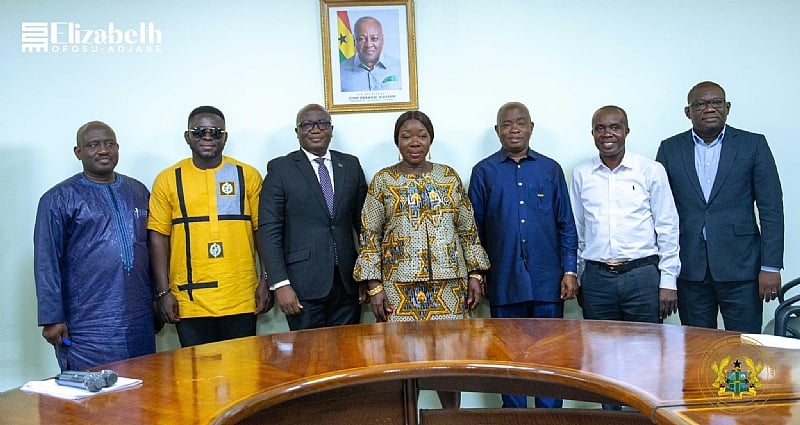The Komenda Sugar Factory, a significant national asset initiated under the previous National Democratic Congress (NDC) government, has experienced a series of operational and supply chain challenges, hindering its ability to function as a viable contributor to Ghana’s economy. To address these persistent issues and revitalize the factory, the Ministry of Trade, Agribusiness, and Industry has taken a decisive step by establishing an Interim Management Committee (IMC). This committee has been tasked with a comprehensive assessment of the factory’s current state, its financial viability, and potential strategies for its successful revival. Minister Elizabeth Ofosu-Adjare underscored the factory’s importance as a valuable national project and expressed optimism that the IMC’s intervention would pave the way for its sustainable operation.
The Komenda Sugar Factory, built in 2013 by Seftech India Pvt, represents a considerable investment of $36.25 million, financed through a combination of funding from India EXIM Bank and a grant from what is now Ghana EXIM Bank. With a designed production capacity of 125 metric tons of sugar daily, and future expansion plans to include ethanol and power generation, the factory holds the potential to become a significant player in Ghana’s agricultural and industrial landscape. However, despite previous attempts to revive its operations, including partnerships with Park Agrotech in 2020 and West Africa Agro-Tech Company Limited under the One District, One Factory (1D1F) program, the factory has yet to achieve sustainable operation.
The newly formed IMC, chaired by Kwame Owusu Sakyere, bears the responsibility of thoroughly examining the factory’s operational bottlenecks and formulating a roadmap for its resurgence. The committee’s mandate includes a comprehensive assessment of the plant’s current condition, a detailed review of its financial viability, and a thorough evaluation of the sugarcane supply chain, which is crucial for the factory’s raw material needs. Identifying a reliable and committed partner for the long-term sustainability of the factory’s operations is also a key component of the IMC’s mandate. Furthermore, the committee will review the existing plans developed by the Ministry and propose concrete steps towards achieving full operational capacity.
Minister Ofosu-Adjare emphasized the potential of the Komenda Sugar Factory to create much-needed jobs within the local community and significantly reduce Ghana’s reliance on imported sugar. This aligns with the government’s broader economic diversification strategy and its aim to enhance domestic production capacity. She assured the IMC of the Ministry’s full support in their endeavors, reiterating the government’s commitment to the factory’s success. The IMC Chairman, Mr. Sakyere, expressed gratitude for the trust placed in the committee and pledged to work diligently to deliver tangible results within the stipulated timeframe of eight weeks for the initial report.
The IMC comprises a diverse group of individuals with relevant expertise, selected to provide a multifaceted approach to the challenges facing the Komenda Sugar Factory. Other members of the committee include Ing. Douglas Mensah, Mr. John Doku, Lt. Col. (Rtd.) George Afful, and Mr. Ransford Vanni Amoah. Their combined experience and knowledge will be instrumental in conducting a thorough analysis of the factory’s situation and in formulating effective strategies for its revival. The eight-week timeframe for the initial report underscores the urgency of the task and the government’s commitment to addressing the factory’s issues promptly. The committee’s findings will be crucial in informing the next steps towards achieving the factory’s full potential and realizing its significant economic benefits for Ghana.
The revival of the Komenda Sugar Factory holds significant promise for Ghana’s economic development, particularly in terms of job creation, import substitution, and potential for future expansion into related industries such as ethanol and power generation. The establishment of the IMC signifies the government’s commitment to addressing the challenges that have hampered the factory’s progress and ensuring its long-term sustainability. The committee’s work will be crucial in providing a clear roadmap for the factory’s revitalization and its contribution to Ghana’s economic growth. The successful operation of the factory can also contribute to the development of the local community, providing economic opportunities and stimulating growth in the region. The IMC’s comprehensive assessment and subsequent recommendations will play a vital role in shaping the future of the Komenda Sugar Factory and its contribution to the nation’s economy.


